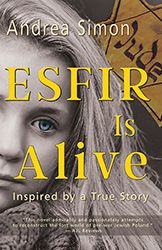By
– September 22, 2011
Hans Keilson was born in Berlin in 1909, and fled to the Netherlands after the Nuremberg Laws were instituted in 1935, which prevented him as a Jew from practicing medicine. During World War II, Keilson joined the Dutch resistance, and following the war, was a practicing psychoanalyst who pioneered in the treatment of war trauma on children.
Both of Keilson’s novels concern the war years. The Death of the Adversary deals with his protagonist’s denial of the consequences of Hitler’s rise to power, and Comedy in a Minor Key is about a Dutch couple hiding a Jewish merchant in their home during the German occupation of the Netherlands.
The Death of the Adversary, written while Keilson was in hiding during the war, is one of the best accounts of what it must have been like for a Jew growing up in Germany as Hitler and the Nazis commenced their ascent to power. Yet, nowhere in this riveting and often philosophical novel, does Keilson mention the word Jew or Jewish, Hitler or Nazi. Rather, the novel centers on the evolution of Keilson’s unnamed narrator who, at first, refuses to believe his father’s warning about “B” (Hitler) and his danger to the Jews, as well as eschewing the warning of his “marked” (Jewish) friends. As the novel unfolds in a series of confrontations with young Nazis, the unnamed narrator moves from self-denial about the danger of Hitler to an acute recognition of what the Nazis will eventually have in store for the Jews. In the process, the story is filled with the narrator’s experience with people who hate Jews, and culminates in a harrowing confrontation with Hitler youth types who boast about how they desecrated a Jewish cemetery.
Less compelling than Death of an Adversary, Comedy in a Minor Key is a penetrating study of a Dutch couple’s motivation behind hiding a Jew, Nico, during the Nazi occupation. This darkly comic novella also describes the feelings and emotions of Nico toward the couple who have sheltered him from the Nazis. The book was originally published in the Netherlands in 1947, and has been translated for the first time.
Both of Keilson’s novels concern the war years. The Death of the Adversary deals with his protagonist’s denial of the consequences of Hitler’s rise to power, and Comedy in a Minor Key is about a Dutch couple hiding a Jewish merchant in their home during the German occupation of the Netherlands.
The Death of the Adversary, written while Keilson was in hiding during the war, is one of the best accounts of what it must have been like for a Jew growing up in Germany as Hitler and the Nazis commenced their ascent to power. Yet, nowhere in this riveting and often philosophical novel, does Keilson mention the word Jew or Jewish, Hitler or Nazi. Rather, the novel centers on the evolution of Keilson’s unnamed narrator who, at first, refuses to believe his father’s warning about “B” (Hitler) and his danger to the Jews, as well as eschewing the warning of his “marked” (Jewish) friends. As the novel unfolds in a series of confrontations with young Nazis, the unnamed narrator moves from self-denial about the danger of Hitler to an acute recognition of what the Nazis will eventually have in store for the Jews. In the process, the story is filled with the narrator’s experience with people who hate Jews, and culminates in a harrowing confrontation with Hitler youth types who boast about how they desecrated a Jewish cemetery.
Less compelling than Death of an Adversary, Comedy in a Minor Key is a penetrating study of a Dutch couple’s motivation behind hiding a Jew, Nico, during the Nazi occupation. This darkly comic novella also describes the feelings and emotions of Nico toward the couple who have sheltered him from the Nazis. The book was originally published in the Netherlands in 1947, and has been translated for the first time.
Additional books featured in this review:
Jack Fischel is professor emeritus of history at Millersville University, Millersville, PA and author of The Holocaust (Greenwood Press) and Historical Dictionary of the Holocaust (Rowman and Littlefield).




